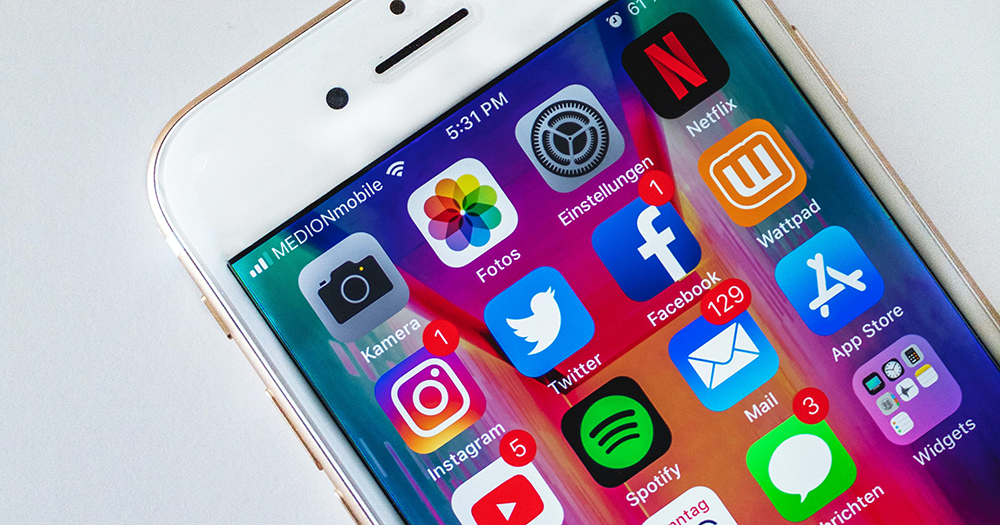As part of Belong To’s It’s Our Social Media campaign, we are platforming the experiences of LGBTQ+ youth online throughout the month of March. Below, 19-year-old Ash Caulfied shares the pros and cons of social media for queer young people.
Social media has fast become part of everyday life for young people; rarely will you find a young person who isn’t active on Instagram, Twitter, BeReal, or one of the many other various platforms that exist today. Social media acts as both an amazing tool and a place of danger, and we must be aware of both of these facts when we are using it.
Social media is, undoubtedly, a great thing. Without it, I truthfully wouldn’t be the person I am today.
It has been a place for me to teach myself new skills, such as photography and ukulele – the former having fast grown into a huge passion of mine that allows me to capture the queer joy of my found family. It has given me a space to share this passion with others and to showcase those photos of which I’m most proud.
https://twitter.com/Belong_To/status/1636047962974437378
Social media has also given me a place to find my people and forge new connections, especially throughout lockdown when I had no way to seek out other LGBTQ+ youth in person as I wished to do. It also allows me to keep in contact with friends who live in other parts of the country, and those who’ve moved abroad. Social media has played a key part in my happiness over the past number of years.
Social media is not just something important to me either; it is of crucial value to the LGBTQ+ community as a whole. Social media has created a space for more visible queer representation than ever before, with celebrities and influencers sharing their stories and living their truths for the masses to see, providing many LGBTQ+ young people with more tangible role models than those we’re used to seeing in books, films, and television shows.
It also creates a space for sharing short-form content, perfect for sharing snippets of LGBTQ+ news, history, and culture that can be consumed by young people. This short, snappy content is much more easily digestible and concise than the more dense information available through libraries and websites. It also provides the means for young LGBTQ+ people to stay in touch with their chosen families and find information about local youth groups.
However, social media very definitely has a dark side. 87% of LGBTQ young people have either seen or experienced some form of anti-LGBTQ+ harassment online, and this is something I myself have witnessed. After an article I wrote about the part transgender women of colour played in the Stonewall riots was published, the piece received transphobic backlash on Twitter. Harassment such as this can come in many forms on social media, ranging from posts and articles to replies and direct messages.
https://twitter.com/Belong_To/status/1632669804887695360
There are, however, ways that we can try to protect ourselves from seeing or receiving such harassment. Unfollowing, blocking, and reporting abusive accounts or posts can help us to stop seeing this harassment, as well as muting certain keywords or phrases.
It’s also important to remember how much of what we see is based on algorithms; what we choose to interact with directly influences the kind of content that will continue to be pushed to us.
That being said, it should not be solely up to us as young people to protect ourselves from this content. Social media platforms should do more to better enforce their community guidelines and improve them to better serve and protect those who report abusive content and those who are on the receiving end of harassment.
Social media has its positives and its negatives, but its importance to young LGBTQ+ people and the wider community cannot and should not be understated.
© 2023 GCN (Gay Community News). All rights reserved.
Support GCN
GCN is a free, vital resource for Ireland’s LGBTQ+ community since 1988.
GCN is a trading name of National LGBT Federation CLG, a registered charity - Charity Number: 20034580.
GCN relies on the generous support of the community and allies to sustain the crucial work that we do. Producing GCN is costly, and, in an industry which has been hugely impacted by rising costs, we need your support to help sustain and grow this vital resource.
Supporting GCN for as little as €1.99 per month will help us continue our work as Ireland’s free, independent LGBTQ+ media.

comments. Please sign in to comment.